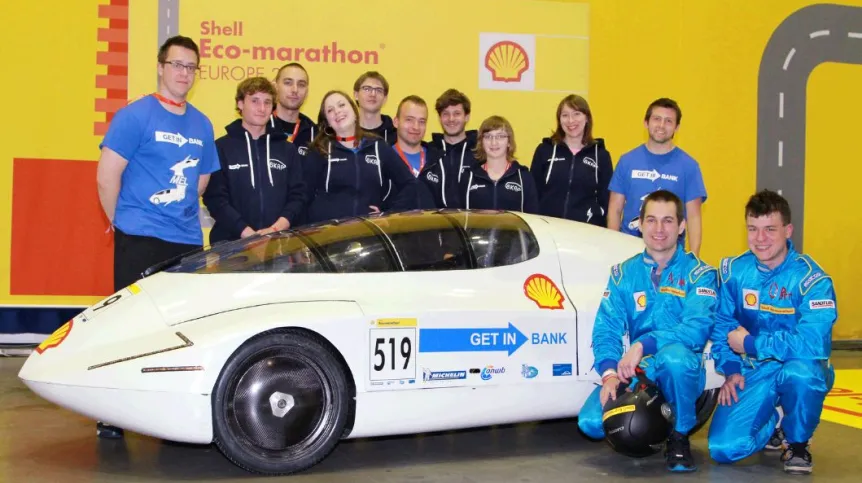
334.2 kilometers on one litre of gasoline is the result of the vehicle built by the Student Vehicle Aerodynamics Club SKAP at Warsaw University of Technology. It was the best gasoline vehicle in the Urban Concept category of the competition Shell Eco-Marathon 2013 in Rotterdam (the Netherlands).
224 teams formed by three thousand students from 24 countries competed in this year\'s 29th edition of Shell Eco-Marathon. Teams competed in two categories: futuristic Prototype and conventional UrbanConcept for vehicles with appearance and functionality of a city car. Teams tried to travel the longest possible route to one litre of fuel or its equivalent. Cars drove a fixed number of laps around the track at a set speed, and the organizers calculated the energy efficiency of each vehicle and selected winners in each category and for each energy source.
In the Urban Concept category, vehicles competed in various sub-categories depending on the power source: ethanol, gasoline, diesel, hydrogen and electric batteries.
The car from Warsaw University of Technology - called PAKS - took first place among the gasoline-powered vehicles. The competition representatives told PAP that the battle for victory was fought to the last moment between SKAP team and the French Lycee Louis Delage team. The third place winner, University of Mons vehicle, drove over 150 km shorter distance than the Polish car.
PAKS was designed as a car that could be used as individual transport of the future. The project was created from scratch, but the designers used the experience gained in the design and performance of its predecessor, the vehicle Mikrus. The vehicle debuted in Shell Eco-Marathon 2012, when it took the second place in the "Safety" category and the third place in class E 95 gasoline vehicles with the result of 300 km on one litre of fuel. Polish students received funding for improving the car from the Ministry of Science and Higher Education programme "Generation of the Future".
Shell Eco-Marathon is open to teams from high schools and universities from around the world, challenged to design, build and test the most energy-efficient vehicles. The winner is the team that covers the longest distance using the least energy.
PAP - Science and Scholarship in Poland
lt/ agt/ mrt/
tr. RL













